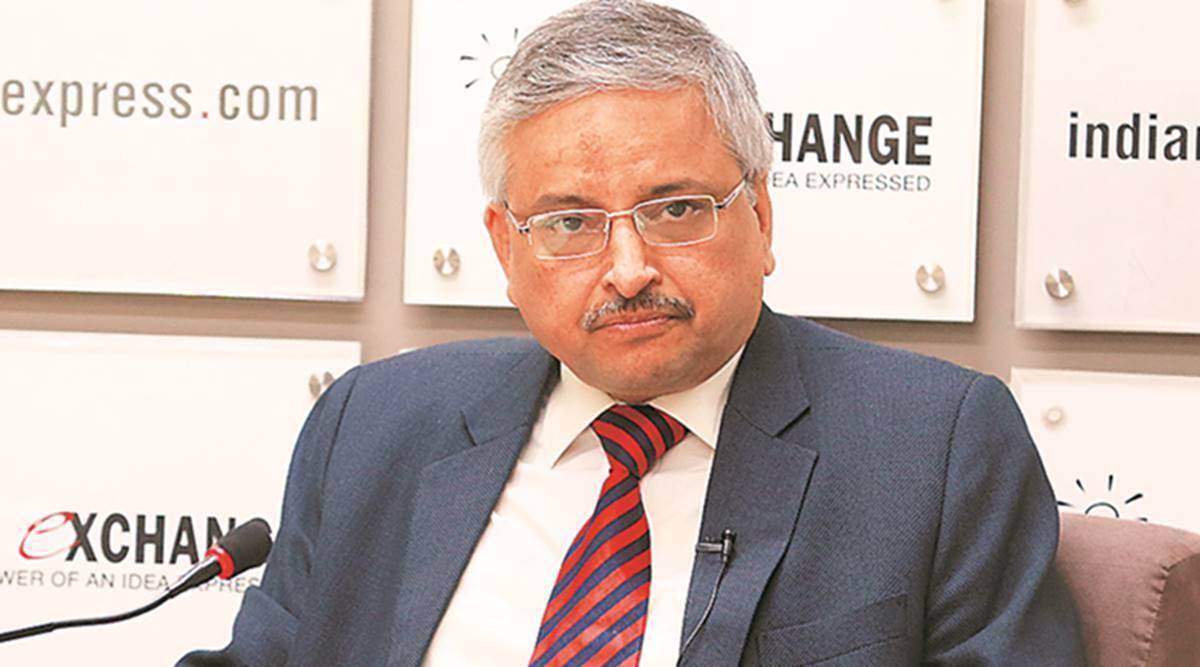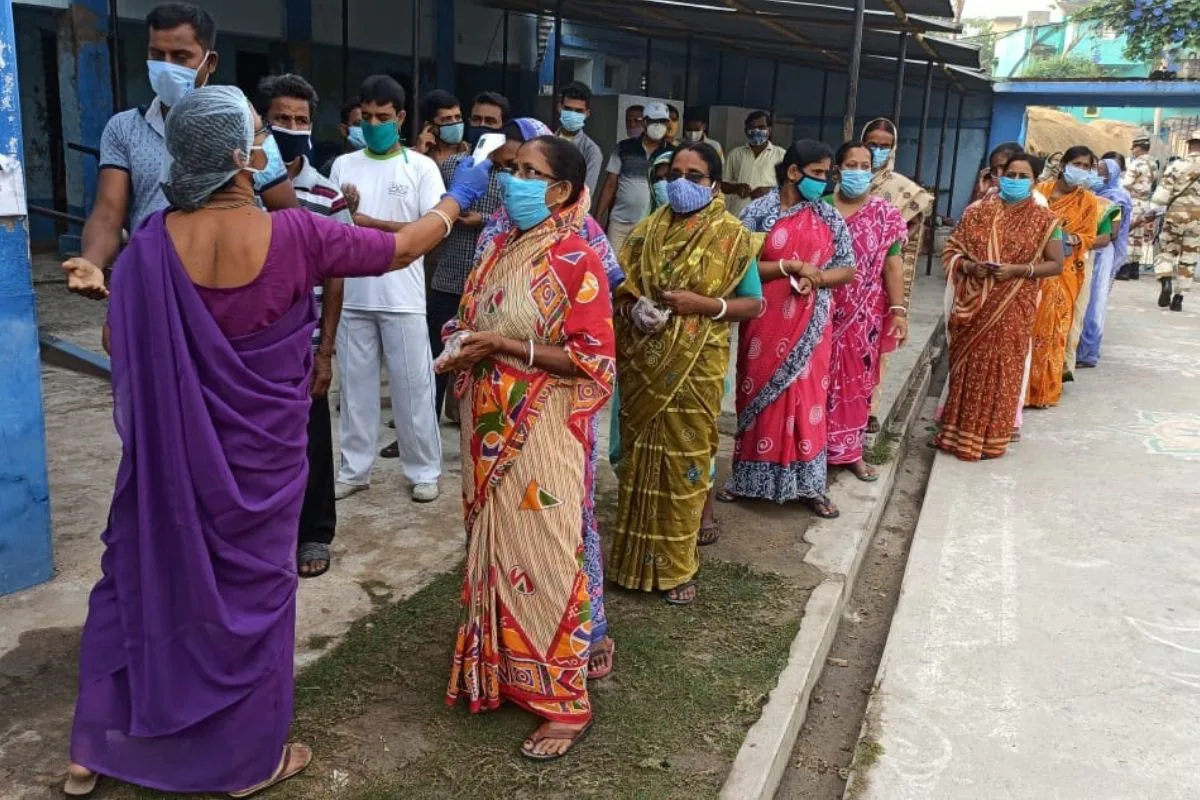A more severe strain and people not finding hospital beds in an overwhelmed healthcare system have been cited as possible reasons by AIIMS chief Dr Randeep Guleria for the surge of deaths in the current Covid wave.
Speaking to The Indian Express at a time when the country has been recording more than 3 lakh new infections for nine days straight, Dr Guleria said: “We are working on different strategies. First is to try to increase turnaround time in terms of triaging. So, if you have a patient who stabilises and the oxygen requirement is not there, then send him to the area with non-oxygen beds, but with close monitoring. There is one area where we are able to give high flow oxygen, but if the patient’s requirement is less then he can be shifted to a low-flow oxygen area. Triaging is becoming important because that was not required in the past as cases gradually came up. The rise was slow in the first wave but it is vertical in the second wave. It’s almost like a rocket. This is why the healthcare infrastructure is badly shaken; had this rise been at a slower rate, we would have been able to manage. The main issue is the rapidity with which the cases have increased, which has created the shortage.”
On the surge in deaths, he said “There can be two or three reasons for the increase in the number of deaths. One is in absolute numbers. If the number of deaths is more and the percentage is less, then we need to have more data to see what is the percentage of death. Second, there is some data which has even emerged from the UK later on that possibly the UK strain was associated with higher mortality. It may be that the strain is also causing severe disease, and it’s also possible that it is associated with higher mortality. Thirdly, since the number has increased so quickly and the healthcare system got strained, many patients are not able to find a bed and are availing treatment at home. By the time they come to the hospital, they are in bad shape and that is also having an effect on mortality.”
With experts claiming that the current surge could peak by mid-May, Dr Guleria said it will depend on how the country breaks the chain of transmission. “People have done a lot of mathematical modelling predicting that by early next month or by the end of next month the peak would happen. So, I think somewhere next month we can start seeing a decline in the number of cases. A lot of this will depend on how we go about trying to break the chain of transmission. If we have an aggressive containment strategy and we are able to prevent transmission to some extent, we will be able to see the peak earlier and decline happening quickly. If that is not done, then we have a large susceptible population and therefore the peak may get delayed,” he said.

Amid debate over the need for a national lockdown, he said that focusing on aggressive containment strategy along with strict localised lockdowns can help bring down the number of cases. “It’s a decision which has to be taken by policy makers but definitely in areas where the positivity rate is high, we have to have a sort of a situation which is akin to lockdown. This is human to human virus spread, and what we are noticing is that despite all messaging and requests, people are still not following Covid-appropriate behaviour. This has to be done more aggressively in terms of enforcing it rather than requesting,” Dr Guleria said.
He also requested people not to panic and rush to hospitals if the situation can be managed at home: “We know that 85% of the people will have only mild illness. Right now, two things have happened — one is the panic reaction, everyone is running to the hospital even if the oxygen saturation is alright, worrying that it may fall and they may not get a bed. They want to get admitted early and block the bed, which is not required because the majority of people will become fine. Secondly, the feeling that there could be shortage of oxygen so there is hoarding of oxygen cylinders, which is also creating unnecessary shortage… We used to have Covid care centre, hospitals and then tertiary care hospitals. Now people are directly going to tertiary care hospitals from their home. That intermediary things have to be looked at, you may just need low flow oxygen and if we have areas which can provide that, then the strain on tertiary care hospitals and ICUs will be less and more sick patients can be managed there.”
He also suggested that people not start taking steroids at an early stage. “The treatment strategy has not changed much but what we have observed is that because of the panic reaction, people have started giving steroids early which are known to cause more harm. A lot of drugs are being misused and given to people which were not given in the past. If your saturation is not falling, and in the early stage of disease when there is viral replication, steroids are not given as they promote viral replication and cause further deterioration. This is being shown in studies as well in the UK. It showed higher worsening in people given steroids early,” he said.




